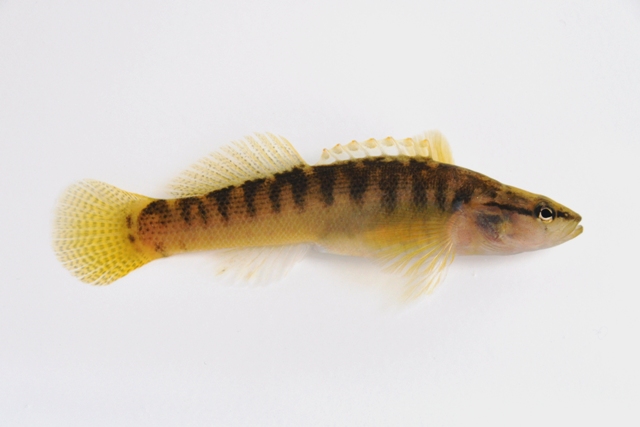Fantail Darter
(Etheostoma flabellare)

Despite their small size, fantail darters aggressively defend small territories centered around a flat rock which they hide under when they feel threatened.
Description
Fantail darters have a long slender body shape with a rounded tail. They have a terminal (straight forward pointing) mouth and pointed snout. They have no bright colors on their body, only shades of brown. They have 10-15 dark vertical bars along their side which usually extend up over their back. Fantail darters also have many small dark spots of their second dorsal and tail fins that form wavy lines. They have a faint tear drop under the eye. Breeding males get light colored round knobs on the tips of the spines of their first dorsal fin. It is thought that these are used as mimics of eggs to make it appear that a male already has eggs in his nest to encourage females to lay more eggs. The vertical bars on breeding males are often very distinct and dark colored. Breeding males often have a very dark almost black head.
Habitat and Habits
Fantail darters are well distributed throughout Ohio. They are most abundant in medium to small streams in the range of 20-40 ft wide. They are found in slower riffles or pools under flat slabs of rock. They are rather tolerant of pollution and turbid muddy waters and are usually the last darter species to disappear from badly polluted streams.
Reproduction and Care of the Young
Fantail darters spawn on the underside of flat rocks in the spring. Males prepare a nest site and females lay their eggs on the roof of the small cave under the rock the male has selected. Several females may spawn in the nest site of a single male. The male then stays to guard the eggs until they hatch.